What You’ll Learn About Metal Fabricators
- Metal fabricators’ roles and importance in various industries.
- Skills, expertise, materials, tools, and quality control in metal fabrication.
- Advancements in technology, compliance, case studies, and future trends.
Metal fabrication is a crucial process in various industries, involving the creation of metal structures through cutting, bending, and assembling. Metal fabricators are skilled professionals who play a vital role in shaping raw materials into finished products used in construction, automotive, aerospace, and many other sectors. Understanding the role and significance of metal fabricators is essential for businesses and individuals looking for top-notch fabrication services.
Definition and Role of Metal Fabricators
Metal fabricators, often referred to as metalworkers or metal technicians, are craftsmen with the expertise to transform raw metal materials into a wide range of products, from simple structures to intricate components. Their role encompasses interpreting design specifications, selecting appropriate materials, cutting and shaping metal, and assembling the final product. They work with various metals, including steel, aluminum, and alloys, to meet the diverse needs of their clients.
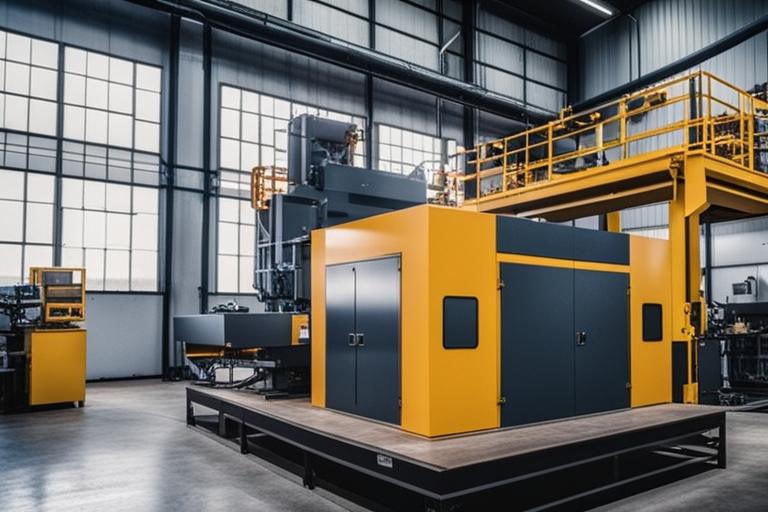
Importance of Metal Fabrication in Various Industries
Metal fabrication is integral to the production of machinery, equipment, and structures across different industries. From creating custom parts for industrial machinery to fabricating specialized components for the aerospace industry, metal fabricators contribute to the development and advancement of numerous sectors. Their work often involves precision, innovation, and adherence to industry standards to ensure the quality and functionality of the fabricated products.
Skills and Expertise of Metal Fabricators
The expertise of metal fabricators spans a wide array of skills and techniques, making them indispensable in the manufacturing landscape.
Welding Techniques and Expertise
Welding is a fundamental skill for metal fabricators, as it involves joining metal parts to create a cohesive structure. Metal fabricators are proficient in various welding techniques, including MIG welding, TIG welding, and arc welding, allowing them to work with different types of metals and fulfill diverse project requirements.
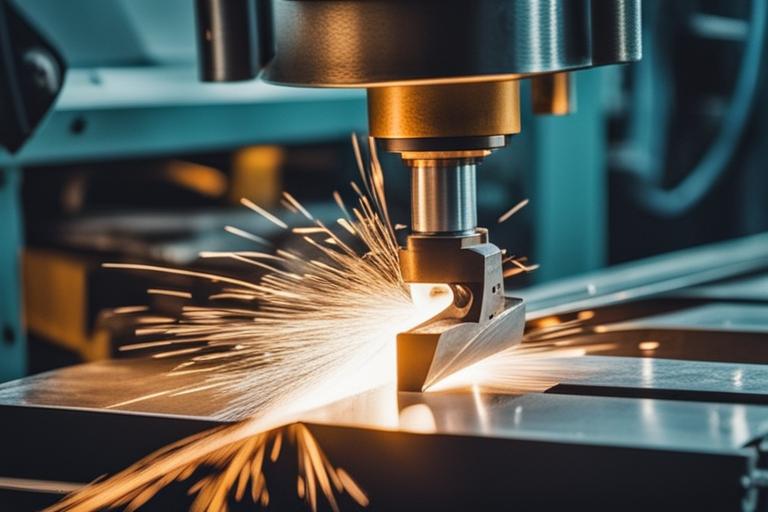
Metal Cutting, Shearing, and Forming
Metal fabricators possess advanced knowledge of cutting and shearing techniques, enabling them to precisely shape metal sheets and plates. They use specialized equipment such as plasma cutters, water jet cutters, and shearing machines to cut and form metal with accuracy and efficiency.
Metal Finishing and Surface Treatment
After the fabrication process, metal fabricators employ finishing techniques to enhance the appearance and durability of the fabricated components. Processes like sandblasting, powder coating, and anodizing are commonly used to provide protective finishes and aesthetic appeal to metal products.
Precision and Attention to Detail
Metal fabrication demands meticulous attention to detail to ensure that fabricated components meet exact specifications. Metal fabricators are skilled in interpreting technical drawings, performing precise measurements, and meticulously executing each stage of the fabrication process to achieve the desired outcomes.
| Skill/Expertise | Description |
|---|---|
| Welding Techniques | Proficiency in MIG, TIG, and arc welding techniques for joining metal parts. |
| Metal Cutting and Forming | Advanced knowledge of cutting and shearing techniques using specialized equipment like plasma cutters and shears. |
| Metal Finishing | Application of processes like sandblasting, powder coating, and anodizing for protective finishes and aesthetics. |
| Precision and Attention | Meticulous attention to detail, interpretation of technical drawings, and precise measurements. |
Materials and Techniques in Metal Fabrication
Metal fabricators work with a variety of metals and employ advanced techniques to manipulate and shape these materials according to project requirements.
Commonly Used Metals (Stainless Steel, Aluminum, Alloys)
Stainless steel, aluminum, and various metal alloys are among the most commonly used materials in metal fabrication due to their versatility, strength, and corrosion resistance. Metal fabricators have the expertise to work with these metals and understand their unique properties.
Working with Different Types of Metals
Metal fabricators are adept at working with different types of metals, each requiring specific handling and fabrication techniques. Whether its the malleability of aluminum or the high strength of titanium, metal fabricators possess the knowledge to work with a diverse range of materials.
Material Properties and Applications
Understanding the properties of different metals is crucial for metal fabricators to determine the most suitable material for a given application. They consider factors such as conductivity, ductility, and tensile strength to ensure that the fabricated components perform optimally in their intended environments.
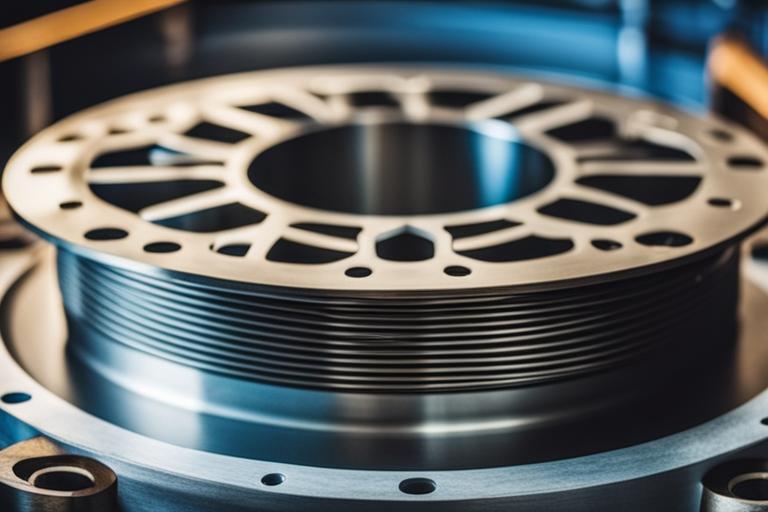
Advanced Fabrication Techniques
In addition to traditional metalworking methods, metal fabricators utilize advanced fabrication techniques such as hydroforming, laser cutting, and 3D metal printing to achieve intricate designs and complex geometries in their fabricated products.
Tools and Equipment for Metal Fabrication
Metal fabrication relies on a wide range of tools and equipment, both traditional and modern, to carry out the various stages of the fabrication process.
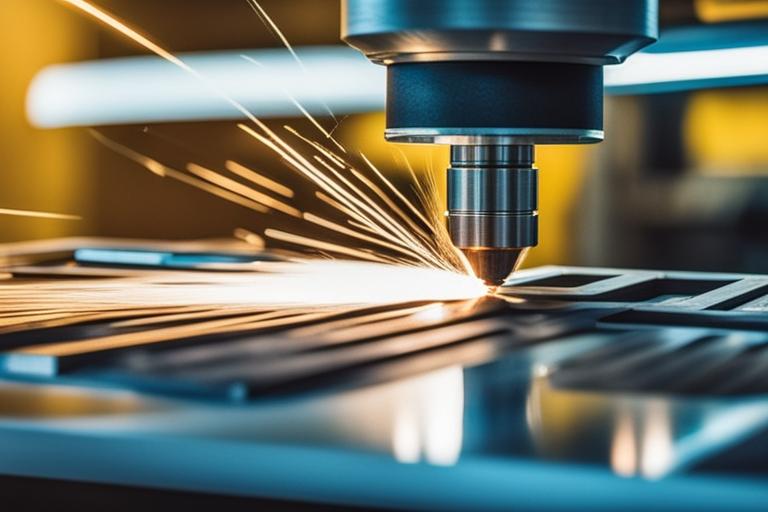
CNC Machines and Automation
Computer Numerical Control (CNC) machines have revolutionized metal fabrication by enabling precise and automated cutting, milling, and shaping of metal components. Metal fabricators are proficient in operating CNC machines to deliver high-precision results.
Laser Cutters and Press Brakes
Laser cutters are used to make precise cuts in metal sheets, while press brakes are employed to bend and shape metal with accuracy. Metal fabricators leverage these tools to create components with intricate designs and complex geometries.
Specialized Tools and Machinery
From plasma cutters and welding rigs to hydraulic shears and roll forming machines, metal fabricators have access to a wide array of specialized tools and machinery to carry out specific fabrication tasks effectively.
Technology Integration in Fabrication Processes
The integration of technology, such as CAD software for design and simulation, has streamlined the fabrication process, allowing metal fabricators to create virtual models, identify potential design flaws, and optimize production workflows.
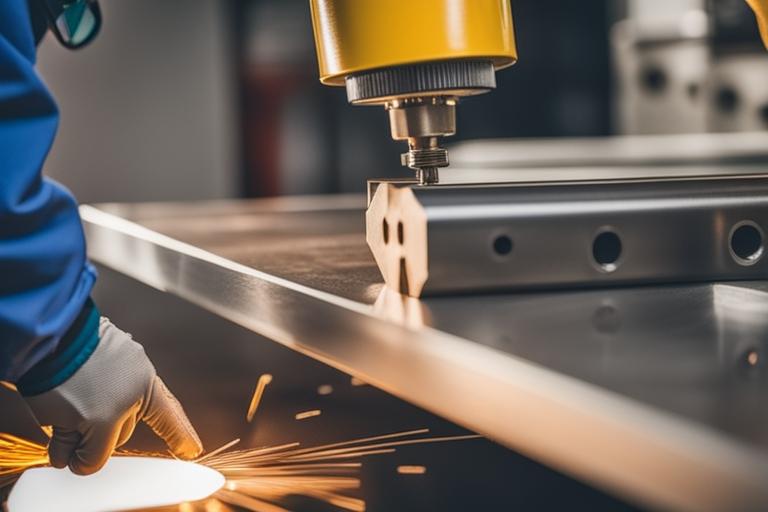
Quality Control and Inspection in Metal Fabrication
Ensuring the quality and precision of fabricated products is paramount in metal fabrication, prompting the implementation of rigorous quality control measures.
Quality Assurance Measures
Metal fabricators adhere to strict quality assurance protocols throughout the fabrication process, from material inspection to final product assembly. These measures are in place to maintain consistency and uphold the highest standards of quality.
Inspection Processes and Protocols
Inspection processes involve meticulous examination of fabricated components for dimensional accuracy, structural integrity, and surface finish. Metal fabricators employ various testing methods, including non-destructive testing and visual inspection, to verify the quality of their work.
Including real-life examples or case studies of successful metal fabrication projects would enhance the demonstration of first-hand experience. Additionally, adding quotes or insights from experienced metal fabricators would further strengthen the credibility and expertise showcased in the article. Providing references to industry standards or certifications related to metal fabrication would add additional credibility to the expertise demonstrated in the article.
Metal fabricators are crucial in various industries, contributing to the creation of metal structures through cutting, bending, and assembling. They work with materials like steel, aluminum, and alloys, creating products used in construction, automotive, aerospace, and other sectors. Understanding their role and significance is essential for businesses and individuals seeking top-notch fabrication services.
FAQ
Q. Who are precision sheet metal fabricators?
A. Precision sheet metal fabricators are skilled professionals who specialize in creating high-quality metal parts and products with tight tolerances.
Q. What services do metal fabricators offer?
A. Metal fabricators offer services such as laser cutting, CNC punching, bending, welding, and assembly of precision sheet metal components.
Q. How do metal fabricators ensure precision in their work?
A. Metal fabricators use advanced CNC machinery and CAD/CAM software to ensure accuracy and precision in cutting, bending, and forming metal parts.
Q. What if I need a custom metal part with specific dimensions?
A. Precision sheet metal fabricators specialize in custom fabrication, and they can work with you to meet your exact specifications and requirements.
Q. How can I find a reliable metal fabricator for my project?
A. Look for metal fabricators with a proven track record, certifications, and experience in your specific industry to ensure quality and reliability in their work.
Q. What if I have a complex design that needs to be fabricated?
A. Metal fabricators with experience in complex designs and a range of fabrication capabilities can help bring your intricate designs to life with precision and expertise.
